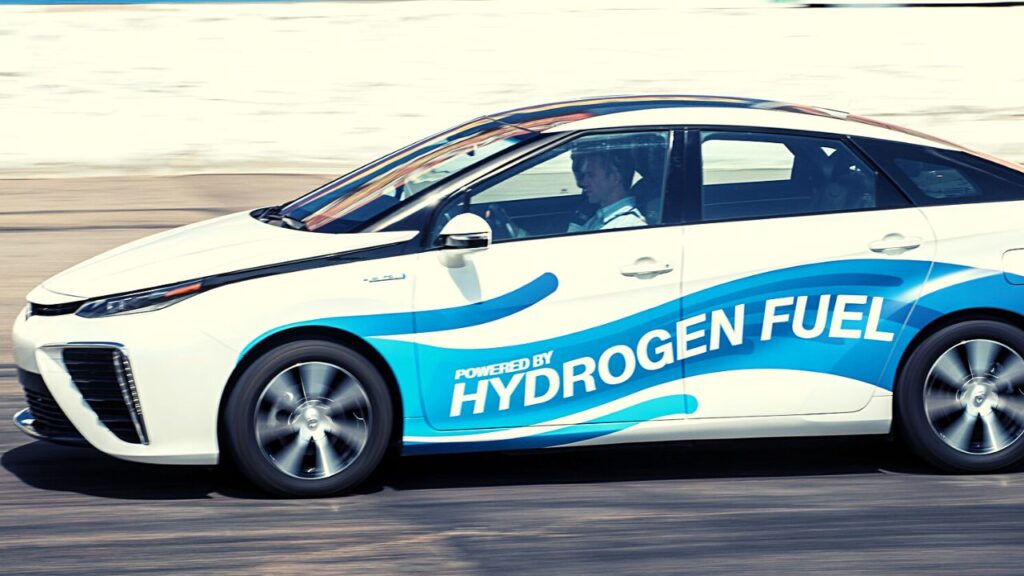The world is at a crucial juncture where environmental concerns push us to reevaluate our transportation choices. In this era of climate change and pollution, the need for sustainable transportation options has never been more urgent. One promising solution that has gained considerable attention is Fuel Cell Electric Vehicles (FCEVs) development and adoption. In this article, we’ll jump into the world of FCEVs, exploring what they are, how they work, their benefits, challenges, and their potential to revolutionize our travel.
Table of Contents
Understanding Fuel Cell Electric Vehicles (FCEVs)
What Are FCEVs?
Fuel Cell Electric Vehicles, or FCEVs, are electric vehicles that utilise hydrogen gas to generate electricity through a chemical process inside a fuel cell. This electricity powers an electric motor, propelling the vehicle and producing zero tailpipe emissions, making FCEVs an eco-friendly alternative to conventional gasoline or diesel-powered vehicles.
How Do FCEVs Work?
- Hydrogen Fuel Storage: FCEVs store hydrogen gas in high-pressure tanks onboard the vehicle.
- Chemical Reaction: Hydrogen is fed into the fuel cell, which reacts with oxygen from the air to produce electricity.
- Electric Propulsion: The electricity generated powers the vehicle’s electric motor, propelling it forward.
- Emission-Free: The only byproduct of this process is water vapour, making FCEVs emissions-free.
Advantages of FCEVs

Zero Emissions
FCEVs are a beacon of hope in the fight against air pollution and greenhouse gas emissions. They produce no harmful pollutants or carbon dioxide (CO2) during operation, significantly reducing the carbon footprint associated with transportation.
Longer Range
FCEVs boast longer driving ranges than purely battery-electric vehicles (BEVs). This makes them a practical choice for consumers who may have concerns about range anxiety.
Quick Refueling
Filling up a hydrogen tank in an FCEV takes a similar amount of time as refuelling a conventional gasoline vehicle. This convenience is a significant advantage over BEVs, which can take longer to recharge.
Versatility
FCEVs can be used in various sectors, including passenger cars, trucks, and buses. Their versatility makes them a viable option for reducing emissions across different modes of transportation.
Challenges and Concerns
Limited Hydrogen Infrastructure
One of the primary challenges facing FCEVs is the limited availability of hydrogen refuelling stations. This infrastructure needs significant development to support widespread adoption.
Cost
Currently, FCEVs tend to be more expensive than traditional vehicles. However, prices are expected to decrease as technology advances and production scales up.
Hydrogen Production
The production of hydrogen itself can be energy-intensive and may rely on fossil fuels, offsetting some of the environmental benefits of FCEVs. Promoting renewable hydrogen production is essential.
The Future of FCEVs
Fuel Cell Electric Vehicles are on the cusp of becoming a game-changer in the automotive industry. As technology improves and infrastructure expands, their advantages will outweigh the challenges.
FAQs
Are FCEVs currently available in the market?
Several automakers have introduced FCEVs, although availability may vary by region.
How far can an FCEV travel on a single tank of hydrogen?
The range varies by model, but some FCEVs can travel over 300 miles on a single tank.
Is hydrogen safe to use as a fuel?
Hydrogen is generally safe, but proper handling and storage are essential to prevent accidents.
Are there government incentives for purchasing FCEVs?
Many countries offer incentives and subsidies to promote FCEV adoption.
What’s the environmental impact of hydrogen production for FCEVs?
It depends on the source of hydrogen. Green hydrogen, produced using renewable energy, has a minimal environmental impact.
